Boilers are an essential part of any central heating system, keeping homes warm and providing hot water on demand. But have you ever wondered how they actually generate heat? Understanding how boilers work can help homeowners make informed decisions about maintenance, energy efficiency, and when it might be time for a replacement. In this guide, we’ll explain the heating process, explore different types of boilers, and offer some tips on keeping your system running efficiently.
The Science Behind Boiler Heating
Boilers operate on a simple principle: they heat water and distribute that heat throughout your home. The process typically involves:
- Fuel Combustion: Boilers burn fuel (natural gas, oil, LPG, or even electricity) to generate heat. A gas boiler, for example, ignites natural gas in the burner to create a controlled flame.
- Heat Exchange: The heat from the flame warms a heat exchanger, which transfers this energy to water circulating through the system.
- Hot Water Circulation: The heated water or steam travels through pipes to radiators, underfloor heating, or taps for hot water.
- Condensing and Efficiency: Modern condensing boilers extract additional heat from exhaust gases, making them more efficient and reducing energy waste.
Each component works seamlessly to maintain a consistent and comfortable temperature in your home.
Types of Boilers and How They Differ
Not all boilers function the same way. The three main types commonly found in UK homes are:
- Combi Boilers (Combination Boilers): These provide both heating and hot water without the need for a separate storage tank. They are compact and efficient, making them ideal for smaller homes.
- System Boilers: These use a separate hot water cylinder but don’t require a cold water tank. They are great for homes with multiple bathrooms, as they can deliver hot water to several taps at once.
- Conventional Boilers (Regular Boilers): These require both a hot water cylinder and a cold water tank, making them best suited for larger homes with high hot water demand.
Each type has its own advantages, and choosing the right one depends on your home’s size, water usage, and existing system.
Tips to Keep Your Boiler Running Efficiently
To ensure your boiler runs smoothly and efficiently, follow these key maintenance tips:
- Annual Servicing: A yearly service by a Gas Safe registered engineer can identify potential issues before they become costly repairs.
- Bleed Your Radiators: Air can get trapped in radiators, reducing efficiency. Bleeding them releases this air, allowing hot water to circulate properly.
- Check the Boiler Pressure: Low pressure can affect performance, while high pressure can strain the system. Your boiler’s manual will indicate the correct pressure range.
- Keep the System Clean: Over time, sludge and debris can build up inside the pipes and radiators, reducing efficiency. A power flush or chemical flush can help keep your system clear.
- Insulate Pipes: Prevent frozen pipes in winter by insulating them, particularly those outside or in unheated areas like lofts and garages.
Taking these steps will not only keep your home warm but also extend the lifespan of your boiler and reduce energy bills.
How Do Boilers Make Heat?
Boilers generate heat by burning fuel or using electricity to warm water, which is then distributed through radiators, underfloor heating, or taps. Whether you have a traditional or modern condensing boiler, proper maintenance is crucial to ensure efficient and safe operation.
If your boiler is struggling to heat your home, making unusual noises, or costing more to run, it might be time for a repair or replacement. At Bracknell Plumbing and Heating, our experienced engineers are here to help with servicing, repairs, and new boiler installations.
Get in touch today for expert advice and a free quote!
